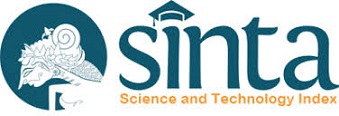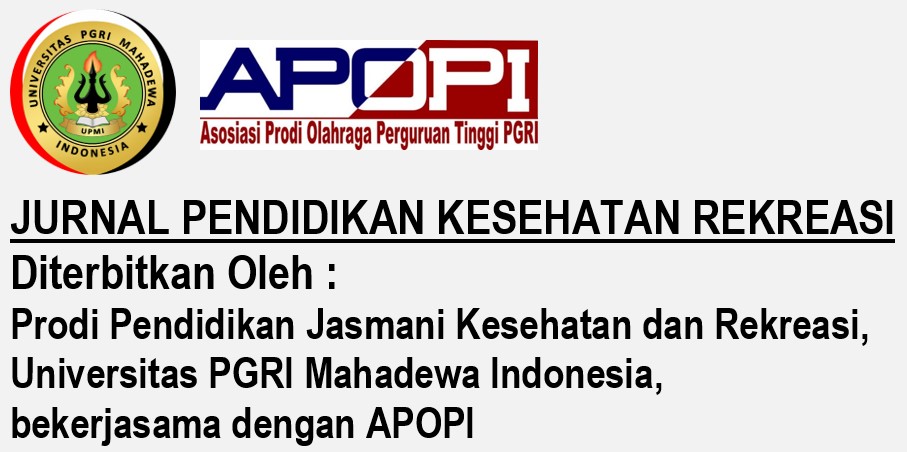Integrasi Life Skills pada Program Latihan Bola Basket dalam Rangka Positif Youth Development
DOI:
https://doi.org/10.59672/jpkr.v10i2.3736Keywords:
life skills, bola basket, positif youth developmentAbstract
Penelitian ini bertujuan untuk mengetahui pengaruh integrasi life skills dan nonintegrasi meningkatkan life skills dalam rangka positif youth development. Metode yang digunakan dalam penelitian ini adalah metode eksperimen. Desain yang digunakan dalam penelitian ini adalah pretest posttest kontrol group desain. Sampel penelitian ini adalah 20 atlet bola basket dibawah binaan PERBASI Provinsi Gorontalo. Proses pengambilan sampel menggunakan teknik purposive sampling. Siswa dibagi menjadi dua kelompok, kelompok eksperimen yang berjumlah 10 siswa dan kelompok kelompok kontrol yang terdiri dari 10 siswa. Instrumen yang digunakan adalah Skala Life skills scale of Sport (LSSS). Hasil penelitian menunjukkan bahwa life skills terintegrasi dalam program latihan bola basket. Program ini berpengaruh signifikan terhadap peningkatan life skills pada atlet bola basket. Sebagai perbandingan, life skills yang tidak terintegrasi dalam latihan bola basket tidak berpengaruh signifikan terhadap peningkatan life skills pada atlet bola basket. Hasil penelitian ini dapat menjadi bahan pertimbangan bagi para pelatih bola basket muda ketika menyusun program pelatihan bola basket sehingga juga mampu mengarah pada positif youth development.
Downloads
References
Artess, J., Hooley, T., & Mellors-Bourne, R. (2016). Employability: A review of the literature 2012 to 2016. Higher Education Academy, 1–53.
Bailey, R. (2018). Sport, physical education and educational worth. Educational Review, 70(1), 51–66. https://doi.org/10.1080/00131911.2018.1403208
Bailey, R., Cope, E., Pearce, G., & Bailey, R. (2013). Why do children take part in , and remain involved in sport ? A literature review and discussion of implications for sports coaches. International Journal of Coaching Science, 7(1), 56–75.
Bailey, R., Hillman, C., Arent, S., & Petitpas, A. (2013). Physical activity: An underestimated investment in human capital? Journal of Physical Activity and Health, 10(3), 289–308. https://doi.org/10.1123/jpah.10.3.289
Bean, C., & Forneris, T. (2016). Examining the Importance of Intentionally Structuring the Youth Sport Context to Facilitate Positive Youth Development. 3200(June), 0–16. https://doi.org/10.1080/10413200.2016.1164764
Bean, C., & Forneris, T. (2016). Examining the Importance of Intentionally Structuring the Youth Sport Context to Facilitate Positive Youth Development. Journal of Applied Sport Psychology, 28(4), 410–425. https://doi.org/10.1080/10413200.2016.1164764
Bean, C., Kendellen, K., & Forneris, T. (2016). Moving Beyond the Gym : Exploring Life Skill Transfer Within a Female Physical Activity-Based Life Skills Program Moving Beyond the Gym : Exploring Life Skill Transfer Within a. 3200(June). https://doi.org/10.1080/10413200.2015.1124155
Brown, T., Theresa, C., & Fry, Mary, D. (2011). Strong girls: A physical-activity/life-skills intervention for girls transitioning to junior high. Journal of Sport Psychology in Action, 2(2), 57–69. https://doi.org/10.1080/21520704.2011.573060
Cabane, C., & Clark, A. E. (2013). Childhood Sporting Activities and Adult Labour-Market Outcomes To cite this version : HAL Id : halshs-00875305.
Cope, E., Bailey, R., Parnell, D., & Nicholls, A. (2017). Football, sport and the development of young people’s life skills. Sport in Society, 20(7), 789–801. https://doi.org/10.1080/17430437.2016.1207771
Cronin, L. (2015). Life Skills Development Through Youth Sport: Antecedents, Consequences, and Measurement.
Cronin, L. D., & Allen, J. (2017). Development and initial validation of the Life Skills Scale for Sport. Psychology of Sport and Exercise, 28, 105–119. https://doi.org/10.1016/j.psychsport.2016.11.001
Goudas, M. et al. (2006). The effectiveness of teaching a life skills program in a physical education context. European Journal of Psychology of Education, 21, 429–438.
Gould, D., & Carson, S. (2010). The relationship between perceived coaching behaviors and developmental benefits of high school sports participation. In Hellenic Journal of Psychology.
Hardcastle, S. J., Tye, M., Glassey, R., & Hagger, M. S. (2015). Exploring the perceived effectiveness of a life skills development program for high-performance athletes. Psychology of Sport and Exercise, 16(P3), 139–149. https://doi.org/10.1016/j.psychsport.2014.10.005
Hayden, L. A., Whitley, M. A., Cook, A. L., Silva, M., & Scherer, A. (2015). Qualitative Research in Sport , Exercise and Health An exploration of life skill development through sport in three international high schools. May, 37–41. https://doi.org/10.1080/2159676X.2015.1011217
Holt, N. L., & Neely, K. C. (2011). Positive Youth Development Through Sport. Positive Youth Development Through Sport, April, 21–33. https://doi.org/10.4324/9781315709499-3
Holt, N., & Neely, K. (2011). Positive youth development through sport: a review. Revista Iberoamericana de Psicología Del Ejercicio y El Deporte, 6(2), 299–316.
Inc, K. (2018). The Importance of Life Skills-Based Education - Learning Liftoff.
Jacobs, F., Knoppers, A., & Webb, L. (2013). Making sense of teaching social and moral skills in physical education. Physical Education and Sport Pedagogy, 18(1), 1–14. https://doi.org/10.1080/17408989.2011.621118
Jacobs, J. M., & Wright, P. M. (2017). Transfer of Life Skills in Sport-Based Youth Development Programs : A Conceptual Framework Bridging Learning to Application Transfer of Life Skills in Sport-Based Youth Development Programs : A Conceptual Framework Bridging Learning to Application. Quest, 00(00), 1–19. https://doi.org/10.1080/00336297.2017.1348304
Jones, M. I., & Lavallee, D. (2009). Exploring the life skills needs of British adolescent athletes. Psychology of Sport and Exercise, 10(1), 159–167. https://doi.org/10.1016/j.psychsport.2008.06.005
Papacharisis, V., Goudas, M., Danish, S. J., & Theodorakis, Y. (2005). The effectiveness of teaching a life skills program in a sport context. Journal of Applied Sport Psychology, 17(3), 247–254. https://doi.org/10.1080/10413200591010139
Pierce, S., Erickson, K., & Sarkar, M. (2020). High school student-athletes’ perceptions and experiences of leadership as a life skill. Psychology of Sport and Exercise, 51, 101716. https://doi.org/10.1016/j.psychsport.2020.101716
Pierce, S., Kendellen, K., Camiré, M., & Gould, D. (2018). Strategies for coaching for life skills transfer. Journal of Sport Psychology in Action, 9(1), 11–20. https://doi.org/10.1080/21520704.2016.1263982
Pierce, Scott., & Camiré, M. (2017). Definition and model of life skills transfer. International Review of Sport and Exercise Psychology, 10(1), 186–211. https://doi.org/10.1080/1750984X.2016.1199727
Schulenkorf, N., & Siefken, K. (2019). Managing sport-for-development and healthy lifestyles: The sport-for-health model. Sport Management Review, 22(1). https://doi.org/10.1016/j.smr.2018.09.003
Suardika, K., Ma’mun, A., Kusmaedi, N., Budiana, D., Mile, S., & Purnomo, E. (2022). Integration of life skills into basic student basketball training program for positive youth development. Cypriot Journal of Educational Sciences, 17(9), 3184–3197. https://doi.org/10.18844/cjes.v17i9.7180
Turnnidge, J., Côté, J., & Hancock, D. J. (2014). Positive Youth Development From Sport to Life: Explicit or Implicit Transfer? Quest, 66(2), 203–217. https://doi.org/10.1080/00336297.2013.867275
Downloads
Published
How to Cite
Issue
Section
License
Copyright (c) 2024 I Kadek Suardika, Suprianto Kadir, Arief Ibnu Haryanto, Rifky Mile

This work is licensed under a Creative Commons Attribution-NonCommercial-ShareAlike 4.0 International License.
Jurnal Pendidikan Kesehatan Rekreasi is published under the terms of Creative Commons Attribution 4.0 International License / CC BY NC SA 4.0. This license permits others to copy, distribute, modify, and create derivative works for non-commercial purposes only


































